Learn how to cultivate essential computational thinking skills in your students for success in today’s digital age! ??
 How computational thinking skills can help your students?
How computational thinking skills can help your students?
Background
- The micro:bit, an affordable and user-friendly physical computing device, has gained global popularity, including in Singapore’s Digital Maker program since 2017.
- This initiative introduces coding to primary and secondary students and fosters an innovative problem-solving spirit using technology.
- Workshops and programmes enable students to develop computational thinking (CT) skills by learning and creating solutions using the micro:bit.
Key Insights
- Engaging hands-on with hardware and software cultivates vital CT skills such as abstraction, decomposition, and algorithm design.
- Physical computing makes applying computational strategies to real- world systems fun and motivating for students.
- Overall, it fosters an understanding of computing ideas while reinforcing core CT competencies.
 Introduction of CT Skills
Introduction of CT Skills
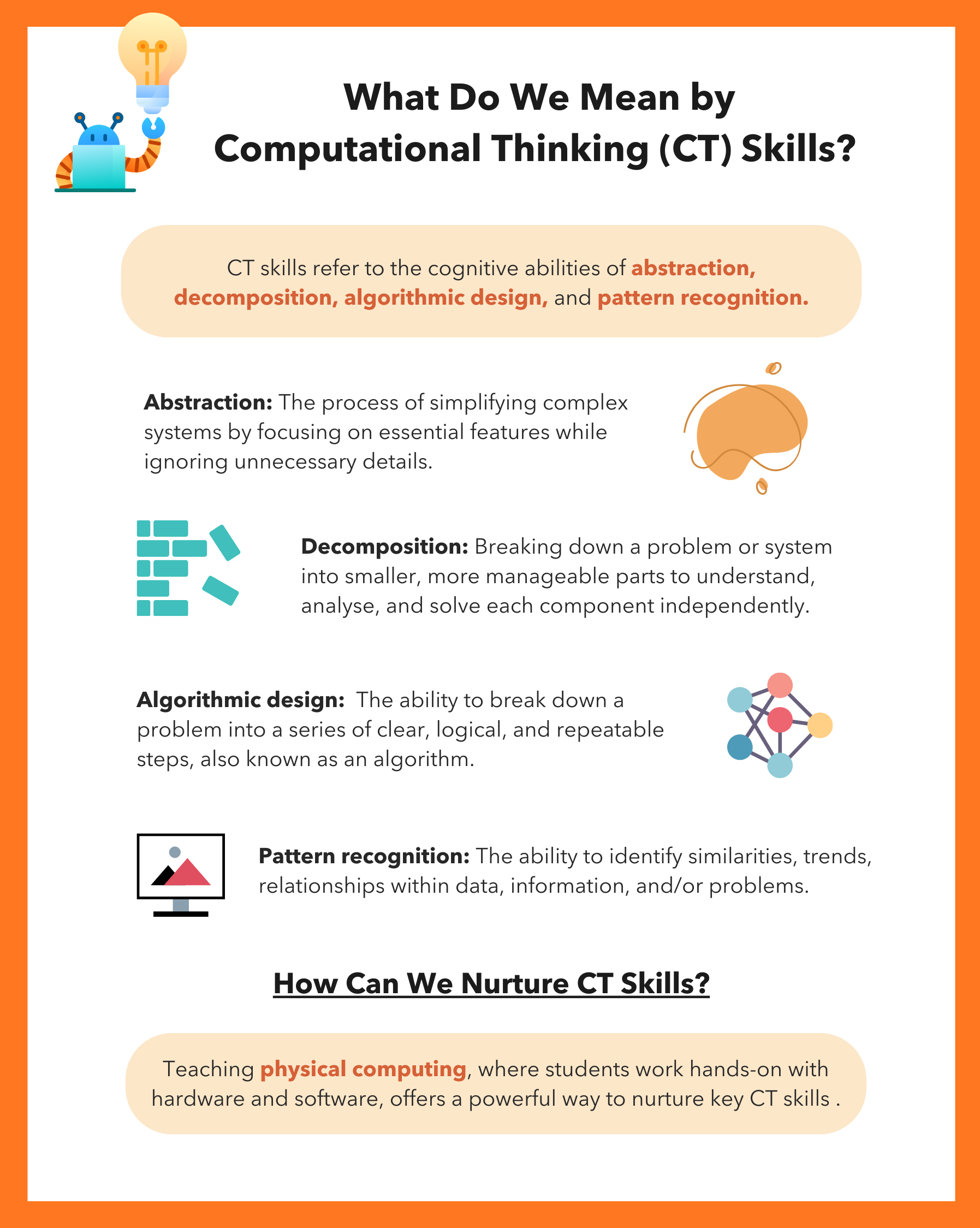
 Enhancing CT Skills Through Physical Computing
Enhancing CT Skills Through Physical Computing
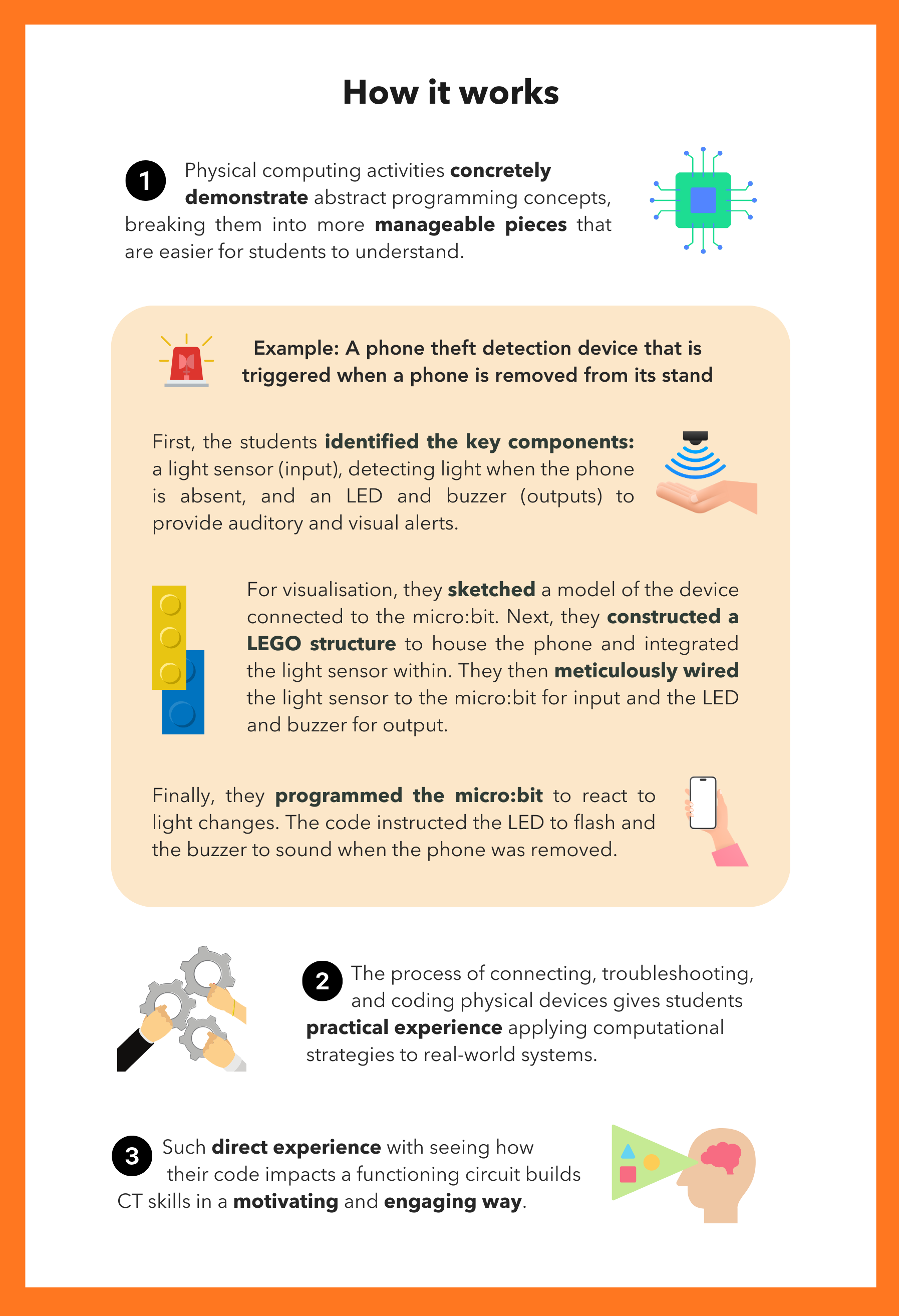
 Research Methodology
Research Methodology
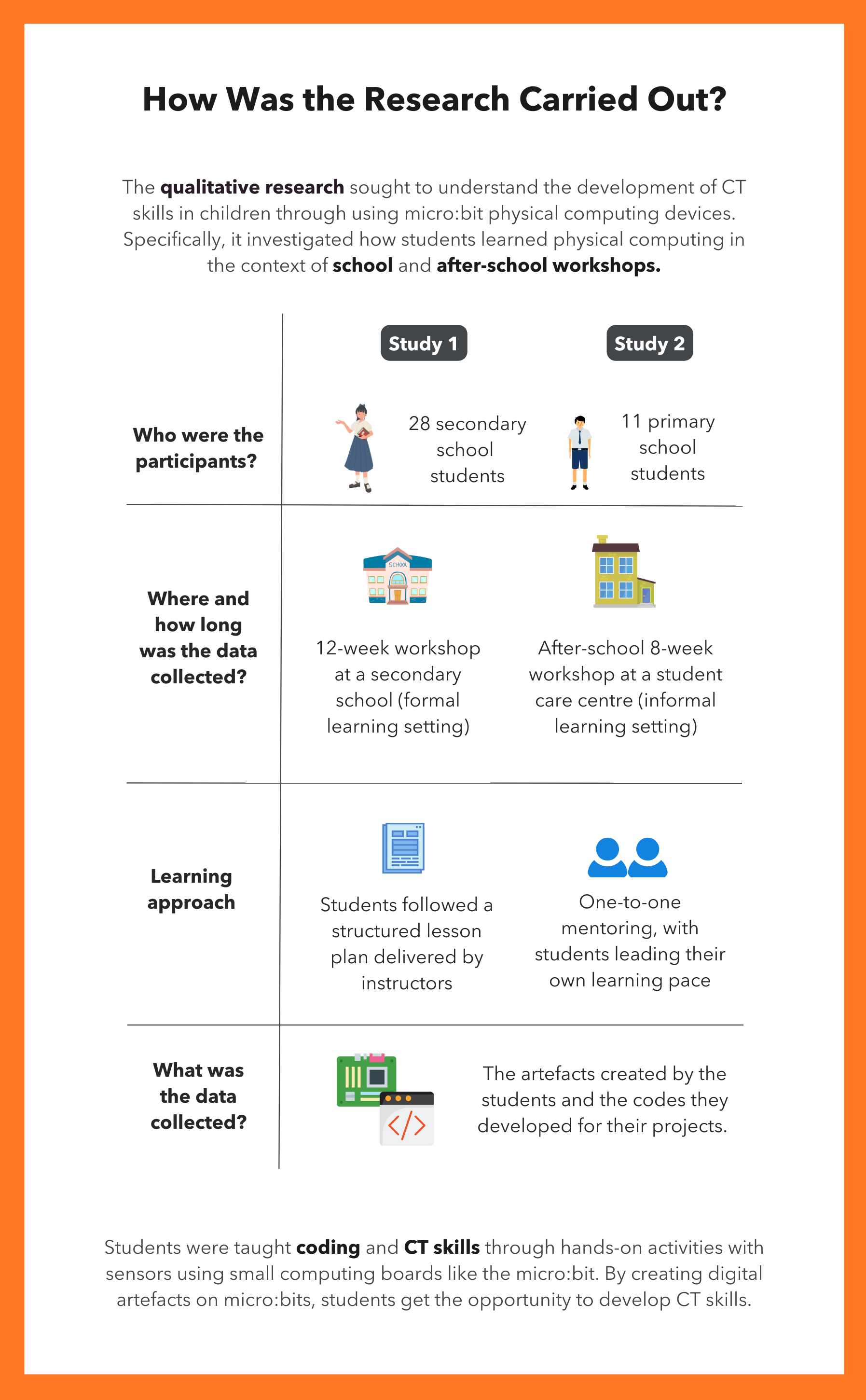
 Research Findings
Research Findings
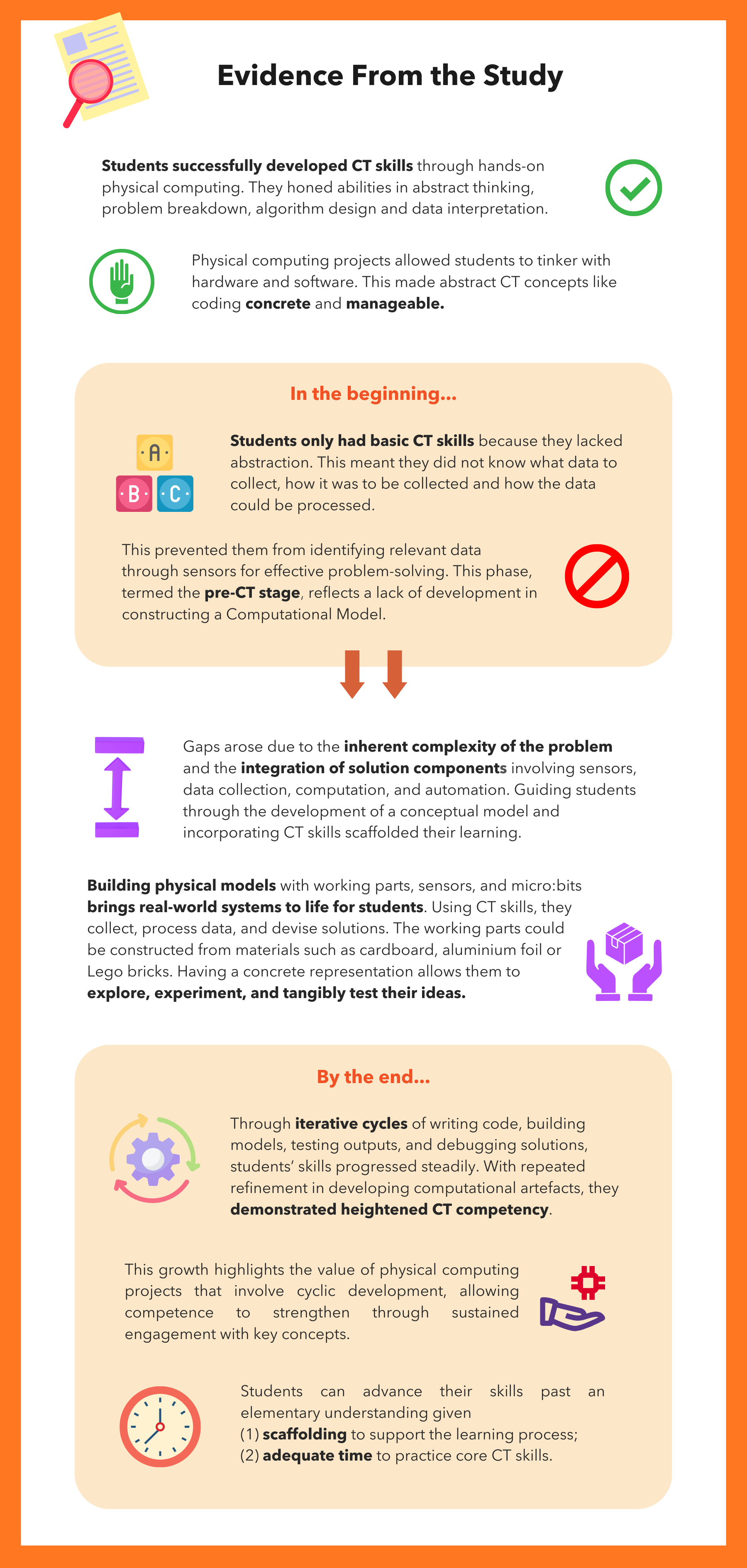
A teacher-student exchange provided by a participating teacher
Teacher: “So, now when there is a lot of light, what do you want the micro:bit to do? We want the micro:bit to make sound. What should we do?”
Student: “This is where you place the phone; then, after that, LED lights will be placed around it. When someone takes away the phone, there will be a sound, and the lights will also light up.”
 What Does This Mean for Teaching and Learning?
What Does This Mean for Teaching and Learning?
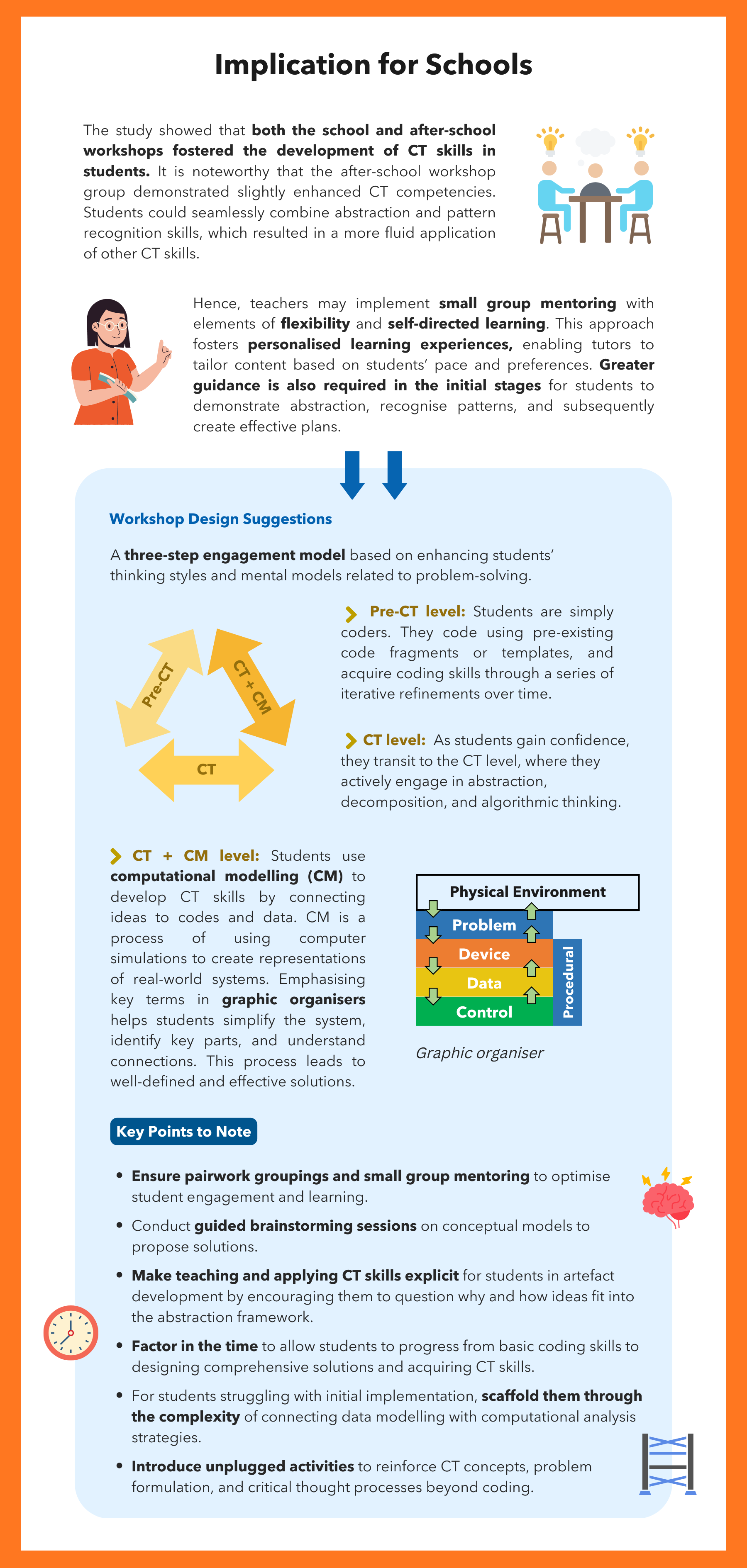
 Research Project
Research Project
- Studying the Development of Computational Thinking Skills in Students’ Use of Physical Computing Devices
 Research Team
Research Team
To learn more about this research, please contact Peter Seow at peter.seow@nie.edu.sg
Principal Investigator
- Peter Seow, Centre for Research in Pedagogy and Practice (CRPP), NIE, NTU.
Co-Principal Investigators
- Prof Looi Chee Kit, Department of Curriculum and Instruction, Education University of Hong Kong.
Collaborator
- A/P Bimlesh Wadhwa, School of Computing, National University of Singapore.
 Acknowledgements
Acknowledgements
This study was funded by the Education Research Funding Programme, National Institute of Education, Nanyang Technological University, Singapore (project no. OER 03/18 PS). Any opinions, findings, and conclusions or recommendations expressed in this material are those of the author(s) and do not necessarily reflect the views of the Singapore MOE and NIE.
This knowledge resource was written by Dr Peter Seow and Ms Radiah Maria Belak and presented on 16 January 2024.




